The health of mothers and children is interrelated and affected by multiple factors. Millions of pregnant women, new mothers, and children experience severe illness or death each year, largely from preventable or treatable causes. Many of our children and young people are not getting the nutrition they need, which is undermining their capacity to grow, develop and learn to their full potential. To increase nutrition status of children and young women, Plan India works towards enabling children, adolescent girls and young women to realize their right to nutrition and food by strengthening the systems, influencing policies to enhance their focus on health and nutrition as a human development issue. This program ensures optimal health and nutrition throughout the life cycle children, particularly girls and women through positive health seeking behaviors and practices, transforming social and gender norms and provision of easily accessible quality health and nutrition services.
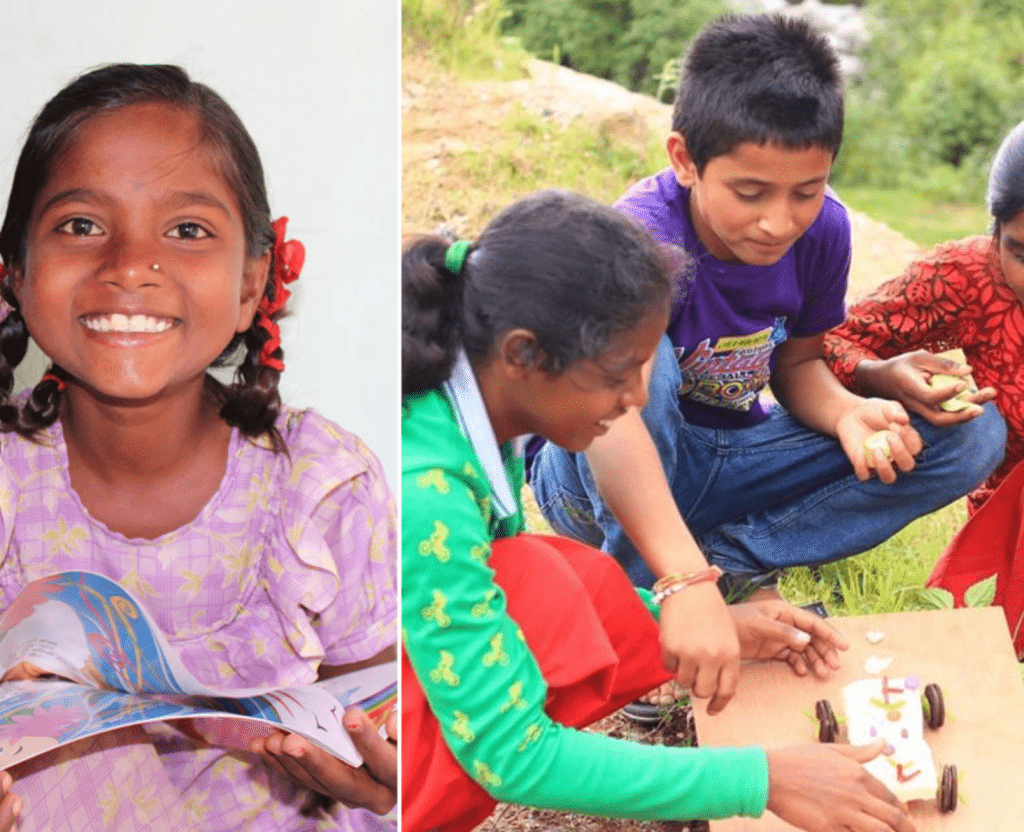
Key Actions:
![]() Improve community involvement to identify and address harmful social and gender norms with reference to improved health and nutrition practices
Improve community involvement to identify and address harmful social and gender norms with reference to improved health and nutrition practices
![]() Improve sanitation and hygiene services
Improve sanitation and hygiene services
![]() Establish community-based support system to improve quality and coverage
Establish community-based support system to improve quality and coverage
![]() Initiate online social media campaign targeting youth and young adults on Right to Nutrition, Eat Right, Eat Safe and Eat Healthy
Initiate online social media campaign targeting youth and young adults on Right to Nutrition, Eat Right, Eat Safe and Eat Healthy
![]() Information literacy among girls and young women on National Health and Nutrition Policy and available schemes.
Information literacy among girls and young women on National Health and Nutrition Policy and available schemes.
![]() Work with service providers and supervisors at system level to create positive norms and attitudes
Work with service providers and supervisors at system level to create positive norms and attitudes
![]() Influence and support government in designing of Annual Implementation Plans of ICDS
Influence and support government in designing of Annual Implementation Plans of ICDS
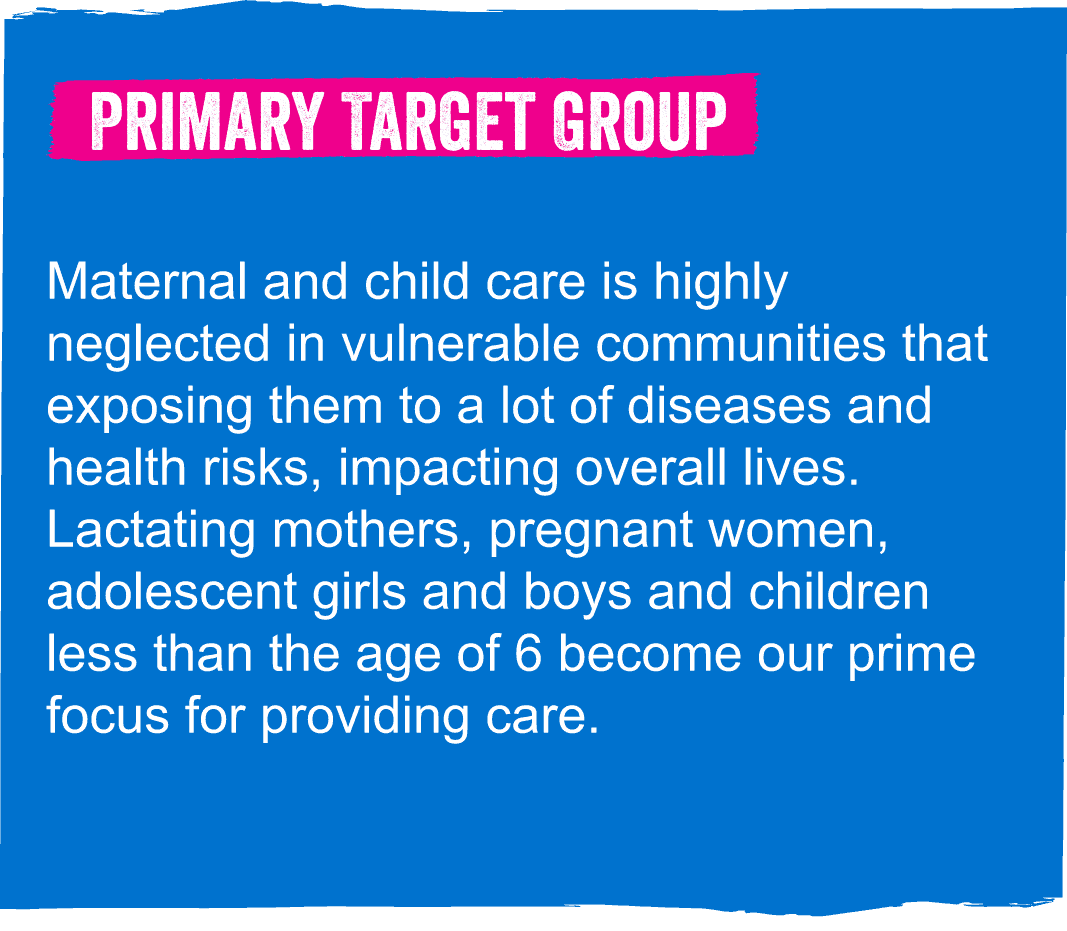
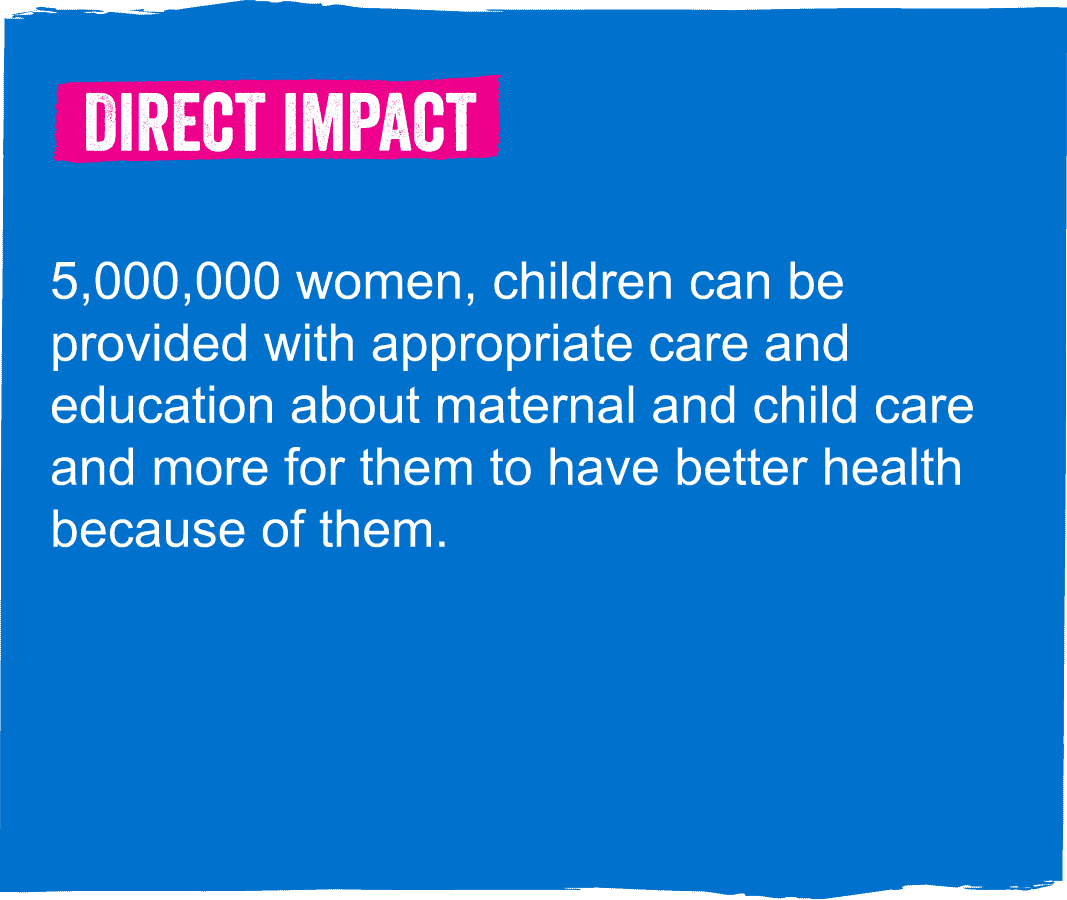
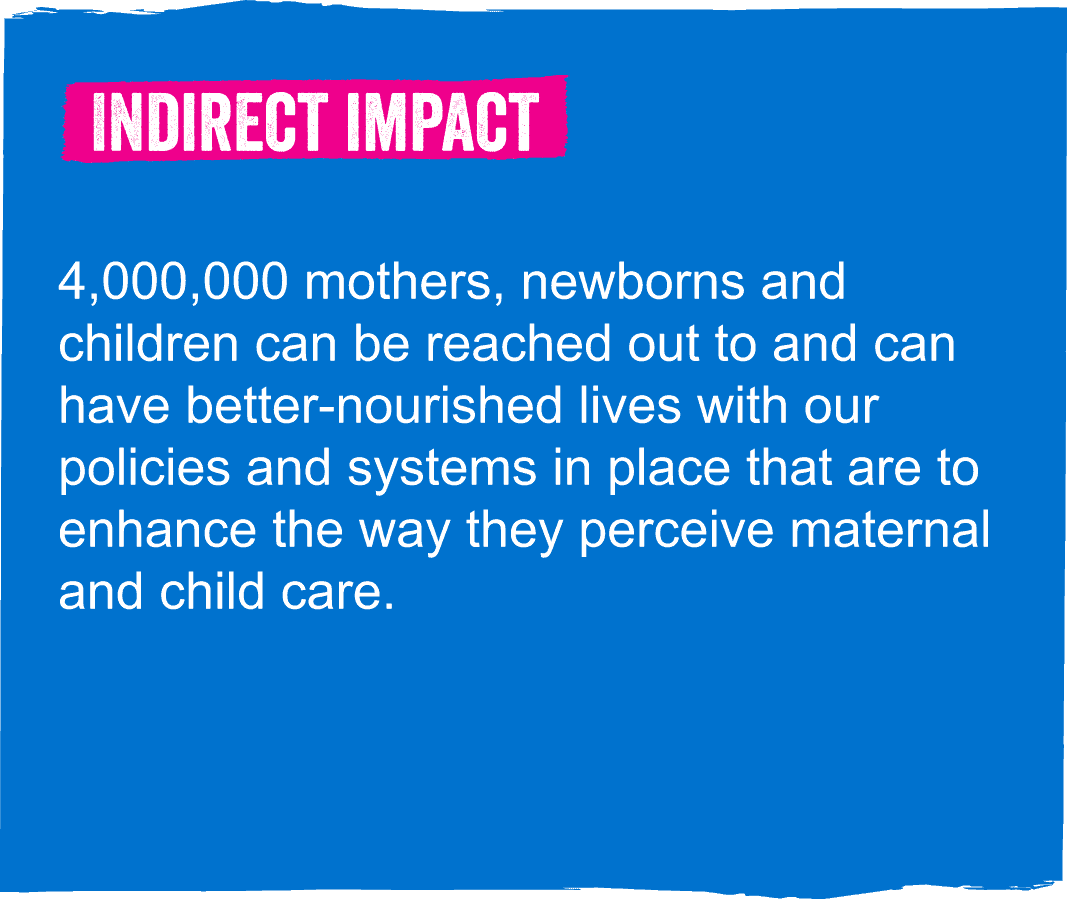
STORIES OF CHANGE
INCLUSIVE AND QUALITY NUTRITION – REACH
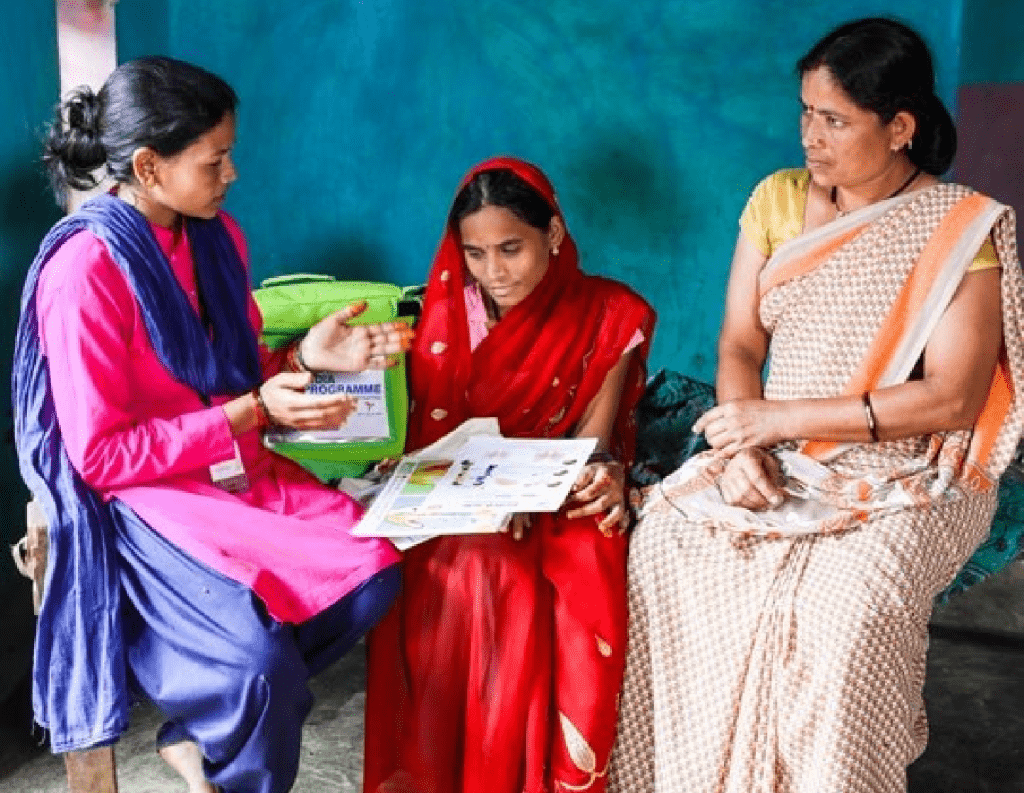
The project Reach Each Child intervenes in the first 1000 days of a newborn, utilizing digital and artificial intelligence-based innovative modules in two tribal districts of Maharashtra – Nandurbar, and Amravati. The team is strengthening the health, hygiene, and nutrition status of pregnant women and children, to reduce the number of stunted children under five years by and reducing and maintaining childhood wasting to less than 5%. The project works on an integrated, multi-sectoral approach that involves communities, civil society organizations, and government agencies. Its design employs distinct features like ethnographic research, which seeks to understand the gaps, needs, and on-ground realities of the lives of the families. Similarly, interventions are designed with a human-centric approach which involved talking to the community to capture socio-cultural insights before designing the program. These research-informed decisions, such as the location and timings of centers, resulted in enhanced adoption and social acceptability of the program outreach and engaging first-of-its-kind female-only cadre of Community Nutrition Workers (CNWs).
AHANA
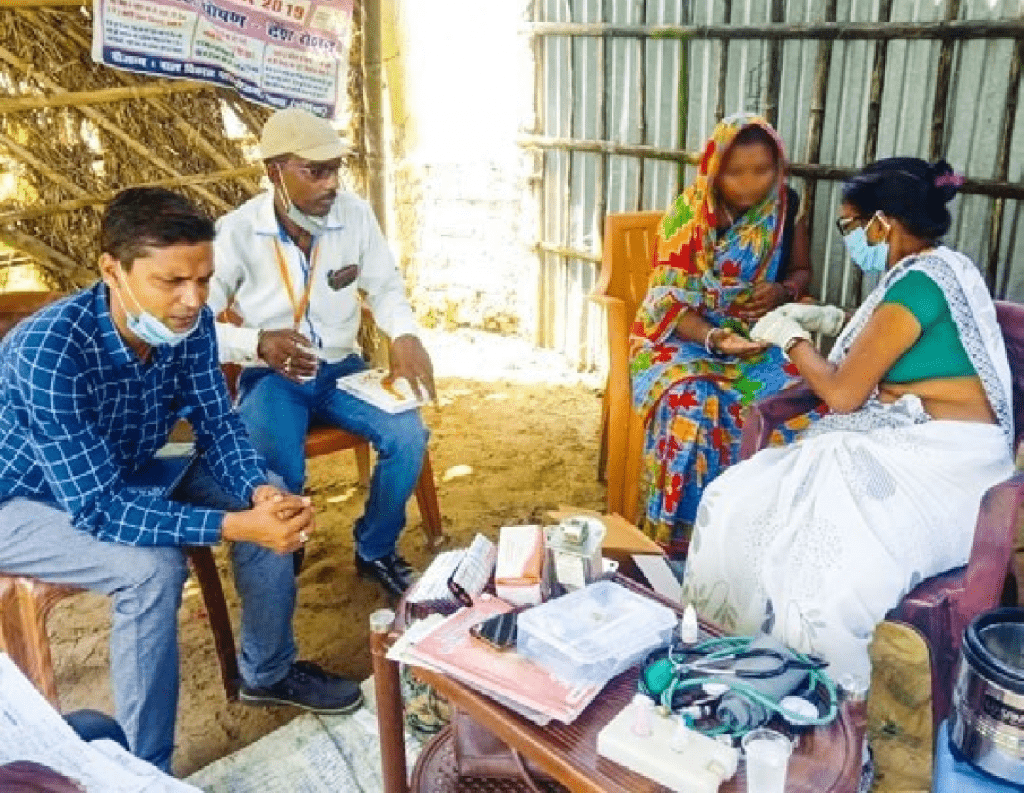
Plan India’s flagship project AHANA, works to reduce the chances of transmission of HIV infection from mother to child. During the Covid-19 lockdown also, worked relentlessly to serve as a bridge between People Living with HIV (PLHIV), including pregnant women, and the life-saving medicine called Antiretroviral (ARV) to ensure that their treatment continued during the lockdown. Supported by Global Fund to Fight AIDS, Tuberculosis, and Malaria (GFATM), Project Ahana is partnering with National AIDS Control Organization (NACO) in reaching the country’s mandate of elimination of mother to child transmission (EMTCT) of HIV by 2024 March. This project was implemented in 14 states covering 347 districts through 8 sub-recipients. The states are – Assam, Arunachal Pradesh, Bihar, Chhattisgarh, Jharkhand, Madhya Pradesh, Manipur, Meghalaya, Mizoram, Nagaland, Odisha, Sikkim, Tripura, and Uttar Pradesh.
Our dedicated outreach team, the project supported to ensure more than 99% of identified HIV Positive Pregnant Women (PPW) and referred to the treatment. 83% of infants received EID (Early Infant Diagnosis) within two months, and more than 98% of spouses and partners received HIV testing.
During the COVID-19 lockdown, public transport services were affected across the country, negatively impacting the access of PPW to health services. AHANA outreach team facilitated the HIV testing of 965,6340 pregnant women and ensured treatment adherence by delivering medicines at the doorsteps of the 32,818 People Living with HIV (PLHIV), including the PPW. It linked 12,836 PLHIV families with nutrition and ration services. Plan India’s flagship project AHANA, works to reduce the chances of transmission of HIV infection from mother to child.





